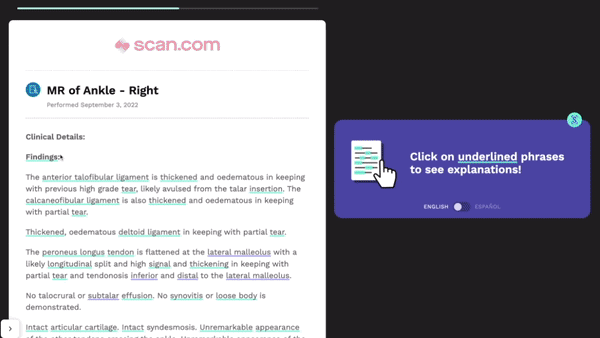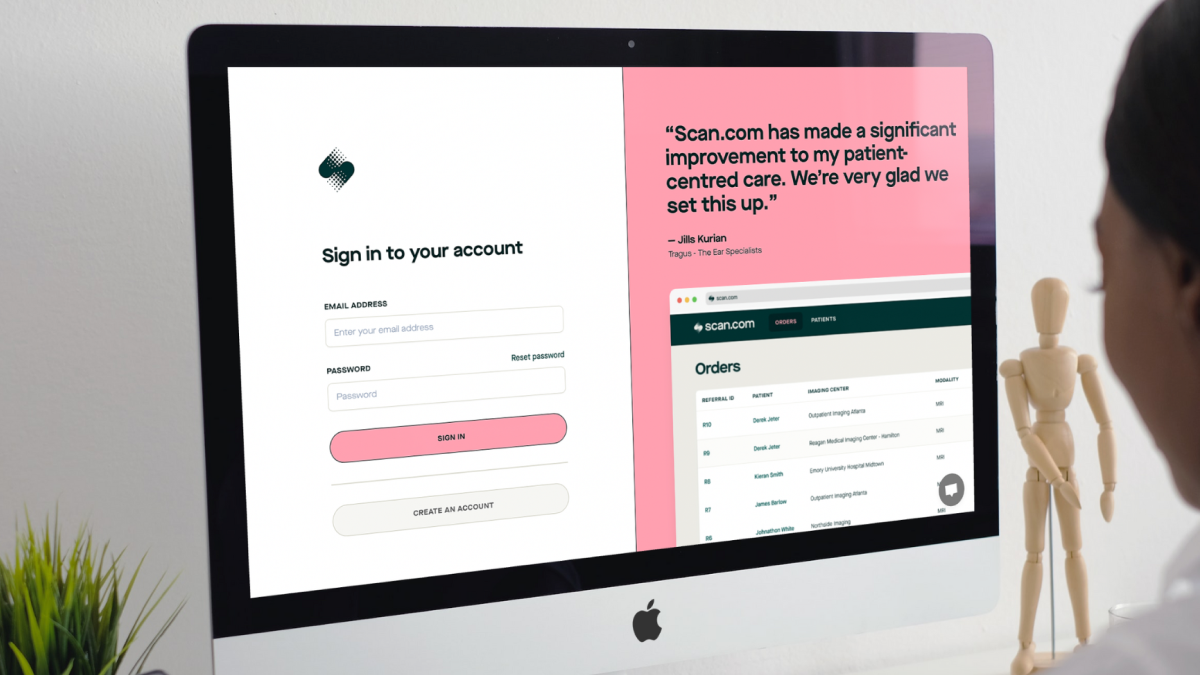Scan.com, which gives patients direct access to private medical imaging services, raises $12 million
[ad_1]
Anyone in the UK who has tried to book an NHS medical appointment lately will know how difficult that can be, with average wait times for elective consultant-led care (i.e. pre-planned clinical treatment) currently at around 14, 6 weeks in England. This has led to an increase in the number of people turning to the private medical sector, a trend that some say heralds the beginning of a two-tier health care system in which those with financial means effectively pay to expedite their treatment. .
At the same time, a faltering public health system has created fertile ground for health-tech startups to flourish, tackling everything from staff shortages to improving radiologist technology.
One such company is Scan.com, a London-based medical imaging startup that connects patients with scanning centers, covering MRI, ultrasound, CT and X-rays. The company announced today that it has raised $12 million in a Series A funding round as it looks to build on its recent launch in the United States.
Timeouts
The problem, according to Scan.com, is that even if a patient is able to book a doctor’s appointment in the first place (a procedure that is becoming increasingly difficult in the UK), the subsequent referral process to get a scan Adequate treatment can take several months, after which they may have to wait even longer for results.
Scan.com has partnered with hundreds of scanning centers to enable people to access medical imaging services with or without a GP referral, with easy-to-use reports packed with clickable diagrams. which are delivered in a week.

Scan.com Report image credits: Scan.com
To use Scan.com’s online referral system, users pay in advance to secure their scan and then schedule a virtual consultation with a doctor within 48 hours.
Prices vary depending on a number of factors, such as location and the type of scan required, but ballpark figures range from £180 to £395 or more, and include consultation, scan and all follow-up reports. .
If a scan identifies a serious problem, the patient enters Scan.com’s “urgent findings track,” where a clinical team contacts the patient and their doctor to explain the results and offer guidance on what to do next.
But the ability to bypass a GP (general practitioner) and self-refer for a medical exam could surely lead to all sorts of time-wasting efforts: what if a patient doesn’t actually need an exam?
“Our clinical team offers consultation and guidance to all patients once they’ve booked, which is a critical part of the service we offer,” Scan.com CEO Charlie Bullock told TechCrunch. “Your time is included in our scanning price, so we accept payment at the time of booking. During the consultation, the physician can modify the type of scan, add or modify body parts, and ensure that the scan is safe and medically justified for the patient’s needs.”
Bullock added that if the doctor determines there is no justification for the scan, Scan.com reimburses the full cost and provides guidance on what the patient should do next. “This happens in about 3% of cases,” Bullock said.
But it’s likely that most patients who are in the scanning-thinking stage have already had some medical evaluations suggesting a scan might be necessary to get to the root of their problems, and a large part of the Target users are simply looking to circumvent the long waiting times that currently tax the NHS.
“Patients may choose to self-refer for imaging for a variety of reasons, but one of the central factors is speed,” Bullock said. “Some patients may have already seen a GP, physiotherapist or other healthcare provider, but have hit a bottleneck in their healthcare process due to long waiting times. They can know what scan they need, and in many cases have been informed of the wait time, and they choose to come to us to access the next steps faster.”

Scan.com: simple references image credits: Scan.com
In truth, there are numerous scenarios that may require a service like the one provided by Scan.com. Some people may have general concerns and want a preventative evaluation without taking up the time of a primary care provider, and Scan.com offers full-body MRIs for such cases.
“Family history or lifestyle factors that could lead to disease can be investigated and verified in this way,” Bullock said.
In addition, more than 10,000 women under the age of 50 are diagnosed with breast cancer in the UK each year, while the country’s national screening program only starts at age 50. As such, Scan.com is preparing to launch early mammograms. later this year, specifically aimed at women under 50.
“Our goal is to fill that gap to speed up access to treatment,” Bullock added.
the story so far

The Scan.com team of 30 image credits: Scan.com
Scan.com was founded about five years ago by doctors Khalid Latief and Jasper Nissim, who had become exasperated by “inefficiencies” in arranging diagnostics for their patients. Initially launched as a side project, the duo brought in CEO Charlie Bullock, COO Oliver Knight and front-end designer Joe Daniels as co-founders in 2019, moving forward to 2021 before going full-time and raising a few pounds. 4.2 million ($5.2 million) in seed funding from investors, including Monzo co-founder Tom Blomfield.
Today, Scan.com has around 30 employees in the UK and US, having launched its product in the US two months ago.
“We grew up to $1 million in annual revenue in the first five weeks in the US after this launch,” Bullock said.
So far, Scan.com has been testing its service in Georgia, and the company is looking to expand into five more states to “establish ourselves as the leading diagnostic imaging platform in the US,” Bullock said. “We also know there’s a huge opportunity within Europe, but with language barriers and more varied healthcare systems, our focus is the US and UK at the moment.”
With another $12 million in the bank, Scan.com is well funded to continue its expansion in the US and also expand its service offering to include DEXA scans, echocardiograms, and the aforementioned mammograms, while also seeking enterprise contracts. with digital health providers. , employee benefit platforms, among other industry organizations.
“Medical imaging covers such a variety of modalities that our focus is to roll out as many as we can,” Bullock said. “In addition to scans, we also want to design ways to add value for our patients, such as guided injections to relieve pain or add in vitro testing and pathology solutions to our preventive screening tests to make them more comprehensive.”
Scan.com’s Series A round was co-led by Oxford Capital, Aviva Ventures, YZR Capital, Triple Point Ventures and Simplyhealth Ventures, with participation from Forefront Venture Partners.
[ad_2]